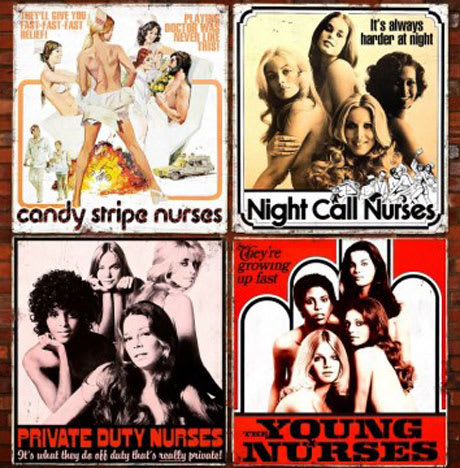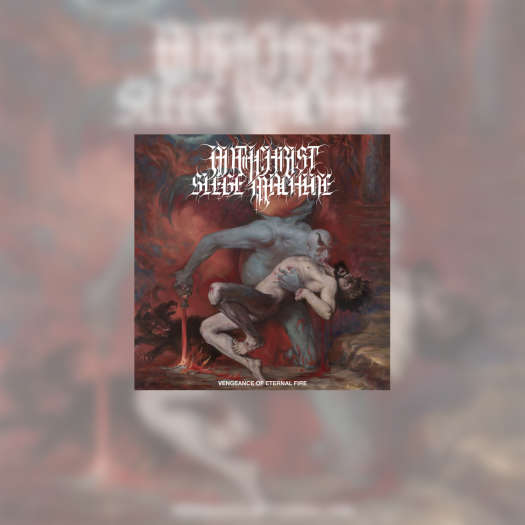Roger Corman's "Nursing Cycle" was one of the great low-budget box-office bonanzas of the early '70s. Packing drive-ins and grindhouses, the loosely connected series of films stuck stringently to Corman's formula of fast-paced flicks with ample does of skin and a sprinkling of subversion. Some of the films were made by young mavericks that went on to greater and more ambitious projects, others were cranked out by yes-men who worked as quickly as possible, appealing to Corman's epic frugality. Shout! Factory has packaged four Nurse movies in a two-DVD set, and while all the films are interesting curios and required viewing for exploitation connoisseurs, the results are mixed. Unfortunately missing from the set is the debut nurse film, Stephanie Rothman's The Student Nurses, the very first film released by Corman's New World Pictures in 1970. Long out-of-print, this omission is all the more puzzling considering the recent raiding of the New World vaults and would have made the set complete. That said, the films aren't sequels and are only tenuously linked thematically. They do however share a common aesthetic and tripartite storyline. Each film follows a trio of three nurses, who each get into their own kind of trouble, using their wits and wiles to get out without breaking a nail. Private Duty Nurses, from 1971, the second nurse film, is the grittiest and most serious of the set. Helmed by George Armitage (Miami Blues, Grosse Pointe Blank), and clearly tooled to appeal to the radical student culture of the time, Private Duty is stridently pessimistic, as the once innocent nurses combat corruption, racism and rape as "the man" becomes men in general. Night Call Nurses, from 1972, is the best film of the bunch and stands on its own, mixing light comedy with fierce action and an expressionistic palette. Written by Armitage, and directed by 22-year-old Jonathan Kaplan, (who would go on to make the underground juvenile delinquent classic Over the Edge), Night Call flows well and is less amateurish than its predecessor. The jarring tonal shifts are intended to challenge a complacent audience, rather than acting as a condition of hasty filmmaking. The film's most defining feature is the tender realism of the sex scenes, which feel fairly perfunctory in the other films. Less interesting are The Young Nurses (1973), which mixes naked beach romps with after school special-style drug hysteria, and Candy Stripe Nurses (1974), which aims for screwball comedy but is paced like a Bela Tarr film. Included in the set are two featurettes, "Anatomy of a Nurse Film" and "Paging Dr. Corman," in which the Cormans (producer Julie and the ageless Roger) and directors Kaplan and Allan Holleb recount the making of the films and are very insistent in pointing out the feminist subtext hidden beneath all the lady flesh.
(Shout! Factory)Roger Corman's Cult Classics All-Night Marathon: The Nurses Collection

BY Bjorn OlsonPublished May 8, 2012



